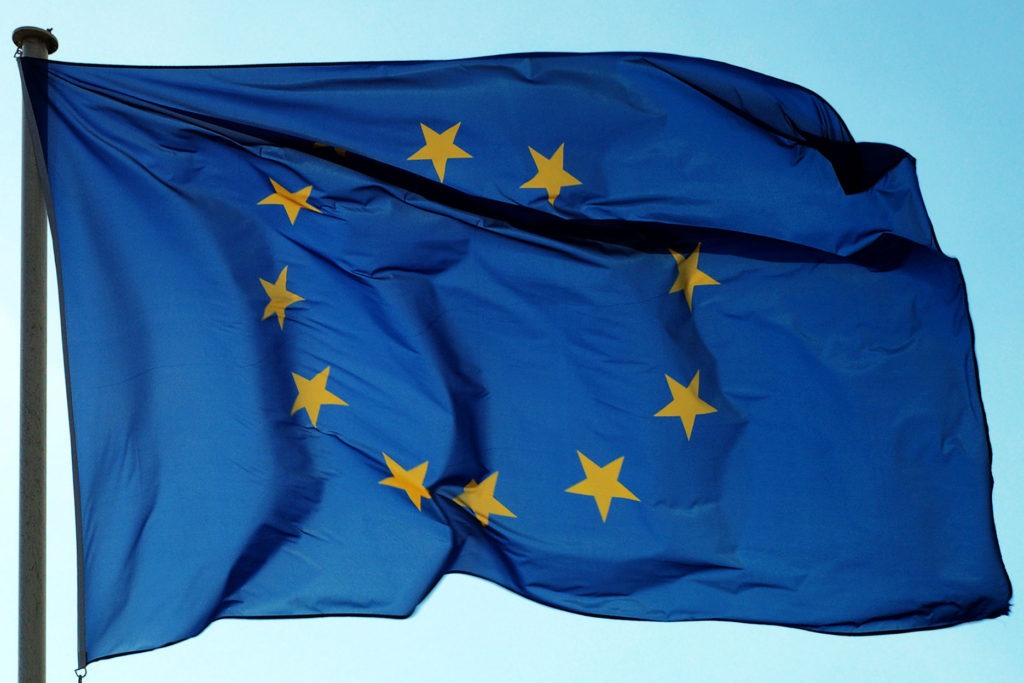The European Council on Tuesday, November 12 formally adopted 13 new collaborative projects under the Permanent Structured Cooperation on Defence and Security (PESCO), the Council said in a release.
There are now 47 PESCO projects in total, and 25 E.U. states are participating.
The new projects include a modular and flexible multi-mission European Patrol Corvette; airborne electronic attack for manned and unmanned aircraft; an advanced command, control and communications service architecture for unmanned anti-submarine systems; space-based early warning systems and endo-atmospheric interceptors to detect, track and counter aerial threats including missiles; and a system to insert drones into the Single European Sky system.
Five of the new PESCO projects focus on training, including an Integrated European Joint Training and Simulation Centre, a Special Operations Forces Medical Training Centre, a CBRN Defence Training Range, a Cyber Academia and Innovation Hub, and an E.U. network of diving centers.
Other new PESCO projects prioritize E.U. collaborative action, including collaborative warfare capabilities, a Cyber and Information Domain Coordination Centre, and on materials and components.
Federica Mogherini, the outgoing High Representative of the European Union for Foreign Affairs and Security Policy, said after a meeting of the Foreign Affairs Council in Defense Formation that the focus now turns to implementation and “making sure that these projects deliver on their purpose.”
“Today a lot of emphasis has been put on implementation and delivery,” Mogherini said. “As of next year there will be a pause on the adoption of new projects, so these 47 projects will be all for now.”
“In two years time, member states will come back to – possibly – new decisions on projects, but these next two years will be dedicated to work full speed on implementation, exactly because we know the test will be on delivery and implementation,” Mogherini said, adding that some of them “are already in the implementation phase.”
Introduced by the Lisbon Treaty, PESCO was formally established in December 2017 and allows participating E.U. states to develop joint defense capabilities, invest in shared projects, and enhance the operational readiness and contribution of their armed forces.
The 25 member states participating in PESCO are: Austria, Belgium, Bulgaria, Czech Republic, Croatia, Cyprus, Estonia, Finland, France, Germany, Greece, Hungary, Italy, Ireland, Latvia, Lithuania, Luxembourg, the Netherlands, Poland, Portugal, Romania, Slovenia, Slovakia, Spain and Sweden.
Among the key European defense projects, France, Germany, Italy and Spain – the E.U.’s leading defense equipment producers once the U.K. leaves the union – have launched with others joint projects to produce drones and future combat aircraft to reduce their dependence on the United States.
The E.U.’s next seven-year budget has €20 billion earmarked for defense in the 2021-2027 financial period.
That spending includes €13 billion for the European Defence Fund, proposed by the Commission last June and approved by the Parliament in April.
The EDF sets aside €4.1 billion for research and €8.9 billion for developing military capabilities. Only collaborative projects involving at least three member states or associated countries can receive funding. The drive to increase European defense funding has caused some tensions with Washington, where officials fear U.S. defense companies may be shut out of E.U. projects.
Mogherini has also proposed a new €10.5 billion “peace facility” that could pay for military equipment, including lethal weaponry, for partner countries in crisis zones such as Africa’s Sahel region.
This post was updated in November 12 to include Mogherini’s comments.



